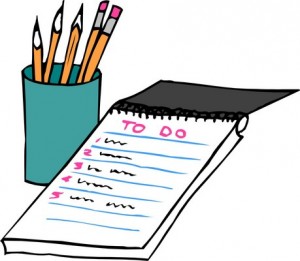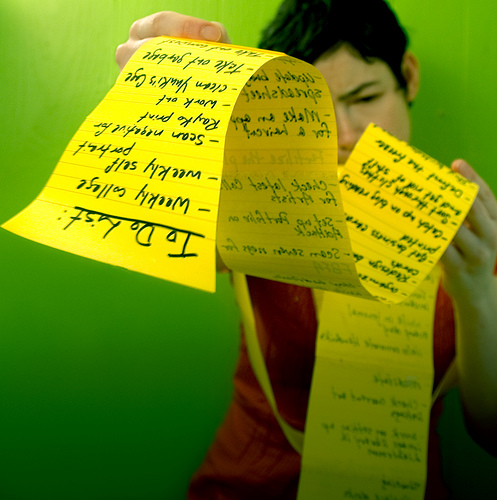 The New Year is upon us and high school students are gearing up for all types of college-related activities. Juniors and seniors especially are looking toward the upcoming year with anticipation and excitement. There are many tasks to complete and many decisions to be made, but the key to gliding through the process is staying organized.
The New Year is upon us and high school students are gearing up for all types of college-related activities. Juniors and seniors especially are looking toward the upcoming year with anticipation and excitement. There are many tasks to complete and many decisions to be made, but the key to gliding through the process is staying organized.
Here are just a few tips that should help make 2014 a successful year and keep your student organized during the college prep process:
Cleanliness is next to godliness
Teenagers are infamous for messes; their rooms are no exception. It’s no surprise that you’re more productive when your space is clean and organized. Their floor should not be a filing cabinet. You can help by providing them with the tools they need to stay organized. A study station, filing cabinets, wall calendars should help, along with calendars and to-do lists on their smartphones. When any type of college related correspondence comes in, establish a landing space that will help you locate the information when needed.
Tame the email monster
Students will be bombarded with emails from colleges, scholarship search engines, teachers and admissions officers. Get started early by creating an email address specifically for college correspondence: firstname_lastname@gmail.com. Use this email address for all communication and create folders to organize the incoming and outgoing mail.
Show me the money
If you expect to get financial aid, you need to be organized. From scholarship applications to completing the FAFSA, you have to stay on top of deadlines, forms and requirements. Missing deadlines and leaving out essential information could cost you and your teen substantial savings. Establish an organization system early in high school and the scholarship search will be less stressful.
Put your best foot forward
Recommendation letters and college interviews require planning and preparation. Long before requesting those letters, students should be establishing relationships with teachers and mentors. They should be networking with the college admissions officers and doing background research about each school. These tasks require organization and planning.
Make a list and check it twice
The college search process begins with a list—a list of colleges that your student is considering for application. This list begins by putting together a wish list of majors, locations, college services and activities and of course, financial aid data. Before the applications are filed, make sure every item on the wish list is satisfied and the colleges your student chooses meet all their expectations.
Staying organized is never easy. It requires a list of priorities and a commitment to complete the daily tasks as planned. An organized student is a successful student. Commit to staying organized in 2014.






